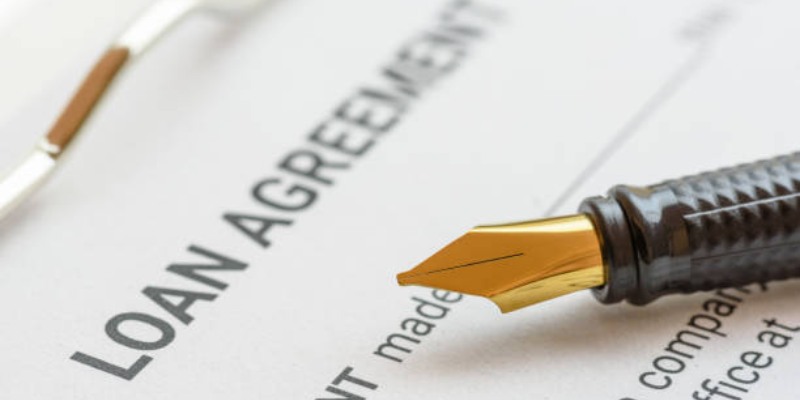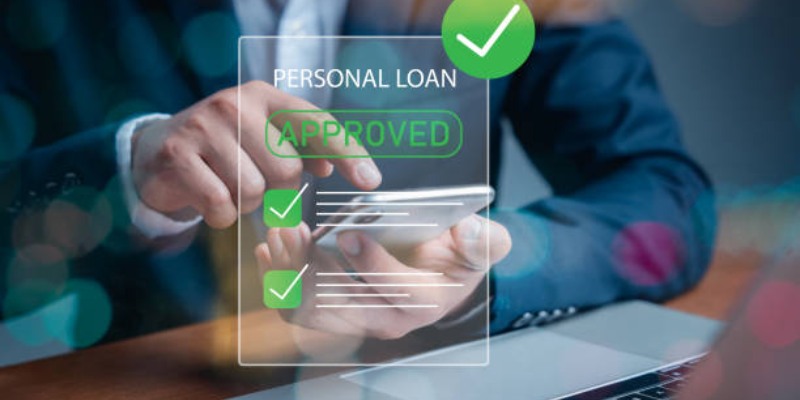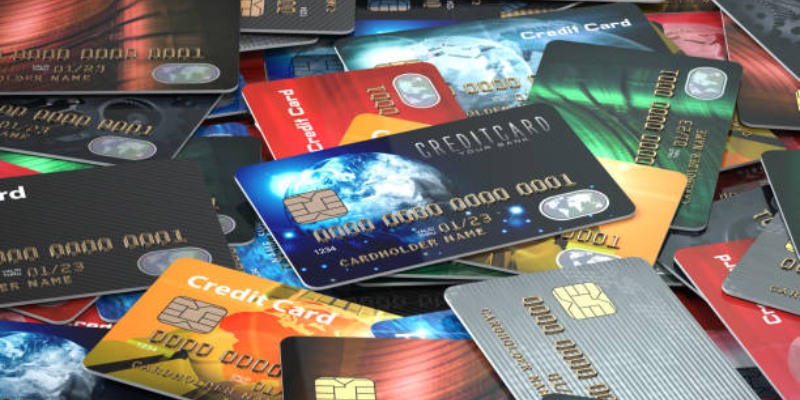Mother & baby
Effective Tips For Teaching Good Habits In Kids
1757645852000
People borrow money every day. Some borrow to pay rent. Some borrow to settle medical bills. Others borrow to fix their car or start a small hustle. But here’s the truth: not all types of borrowing are the same. And if you're going to borrow, at least know what you're getting into.
People borrow money every day. Some borrow to pay rent. Some borrow to settle medical bills. Others borrow to fix their car or start a small hustle. But here’s the truth: not all types of borrowing are the same. And if you're going to borrow, at least know what you're getting into.
Many people are unaware of the differences between a personal loan and a credit card. But the kind of debt you choose can either help you breathe or choke you slowly. It's time to stop treating money like a game.
A personal loan is a lump sum of money you borrow from a bank, credit union, or online lender. You agree to pay back that money over a set period — usually monthly — with interest. The payment stays the same until the loan is paid off.

It's like saying, “Give me $5,000 now, and I’ll pay you back little by little every month.”
The loan has an end date. If you borrow for 2 years, the loan will be repaid within the same 2-year period.
A credit card is like a wallet with borrowed money that refills every time you pay it back. You get a credit limit — say $3,000 — and you can spend up to that limit. But here’s the twist: if you pay just the minimum every month and keep spending, you’ll stay in debt for years.
It's revolving credit. It doesn't end unless you decide to stop using it or clear everything. The interest on credit cards is typically much higher than that on personal loans. And that's where many people fall into a bottomless pit.
Let’s stop acting like all borrowing is equal. If you need money for a one-time expense — like hospital bills, home repairs, or school fees — a personal loan might be better. Why? Because it gives you structure. You borrow once, pay it back bit by bit, and then you’re done.
But if you need constant borrowing to survive, using a credit card might bury you in a mountain of debt. That’s why many people use a credit card to buy pizza and sneakers, and 5 years later, they’re still paying for that same pizza.
Interest is where the real trouble hides. Most credit cards come with interest rates of 18% to 29%. Some go higher. If you borrow $2,000 and only pay the minimum each month, you might pay $5,000 in total. And for what? To live above your means?
On the other hand, personal loans usually have lower interest rates — maybe 6% to 12% if your credit is good. And because the loan ends after a while, you’re not trapped forever.
People like to shout "soft life" and then spend 10 years paying back the cost of one careless shopping spree. That's not soft. That's slavery.

Whether it's a loan or credit card, what matters is discipline. If you borrow money without a plan to pay it back, you are setting yourself up for shame. Not everything in life requires borrowing. Not every need is urgent. And not every want should be fulfilled with debt.
Some people use personal loans wisely and come out better. Others take one loan to pay another. Some use credit cards and pay the full balance each month. Others swipe and forget.
If you know you have poor self-control, using credit cards may be a dangerous choice for you. You'll keep borrowing and only pay back the bare minimum. That's how debt builds up slowly and silently.
Yes, credit cards often come with rewards, such as cashback, travel points, and airline miles. But what's the point of earning $10 cashback when you're losing \$300 in interest?
Don’t be fooled. These rewards are sugar-coated traps. The bank makes more money when you keep borrowing and paying late. They want you to spend more than you earn. That’s how they stay rich while you stay broke.
Unless you're strict and pay the full balance each month, those rewards are not worth the Stress.
Credit cards are not evil. They make sense when:
You want to build a credit history
You need protection for online purchases
You want to avoid carrying cash
You can pay back in full every month
If you can control your spending, you can use a credit card without falling into debt. But don’t pretend you’re in control when you’re not. That’s how people borrow their way into poverty.
Personal loans make more sense when:
You have a fixed expense like a wedding or emergency
You want to consolidate high-interest debt
You want steady payments that end after some time
With a personal loan, there’s usually no temptation to keep borrowing. Once you get the money, that’s it. You focus on repayment, and then it’s over.

It depends on your goal. If you need discipline, structure, and a precise end date, personal loans may be a better option. If you want flexibility and can manage your spending habits, credit cards can be a helpful option.
However, here's the bitter truth: most people lack discipline. That's why credit card debt continues to rise every year.
If your finances are disorganised, don't chase freedom — chase order. A personal loan requires a commitment. A credit card allows you to play. And most people play themselves into a financial hole.
Before you borrow money, ask the hard questions:
Why do I need this money?
Can I afford the monthly payments?
Am I solving a short-term problem with a long-term burden?
Do I want this, or do I need it?
Borrowing money is not the problem. The problem is borrowing without wisdom.
Do you like this article?
Mother & baby
1757645852000
Mother & baby
1757645852000
General Finance
1757645995000
Career & Education
1757645873000
Career & Education
1757645873000
Fashion
1757645952000
General Finance
1757645995000
General Finance
1757645995000
Fashion
1757645952000
Mother & baby
1757645852000









